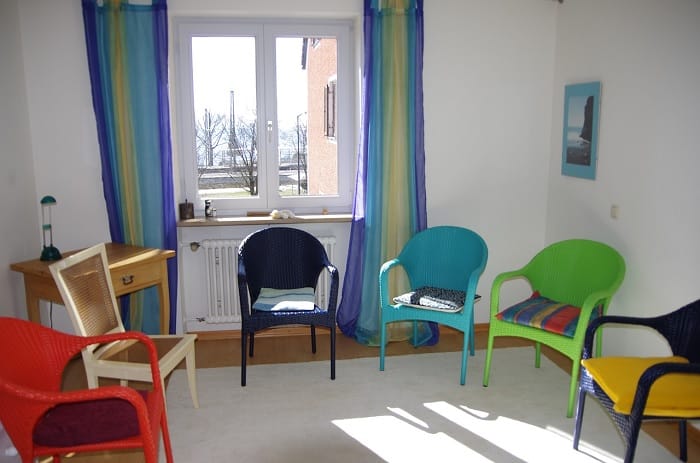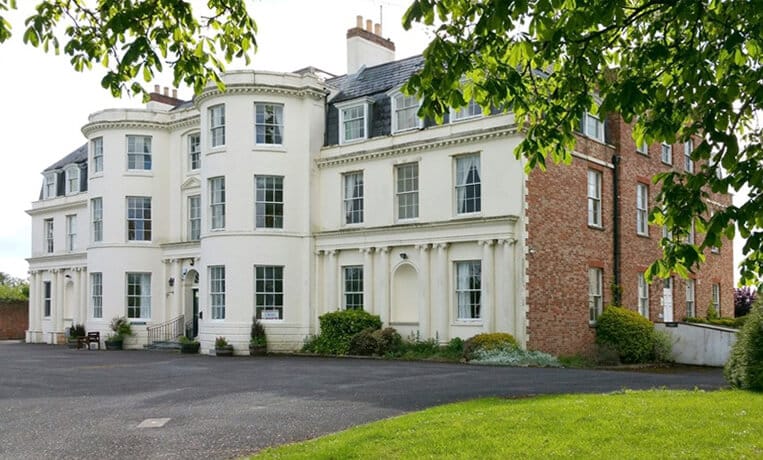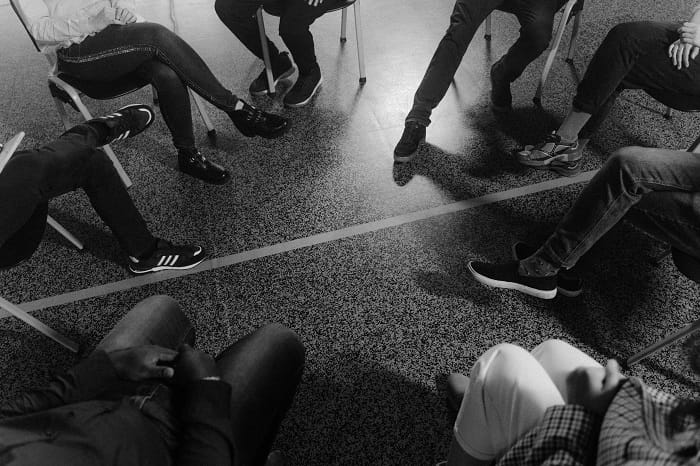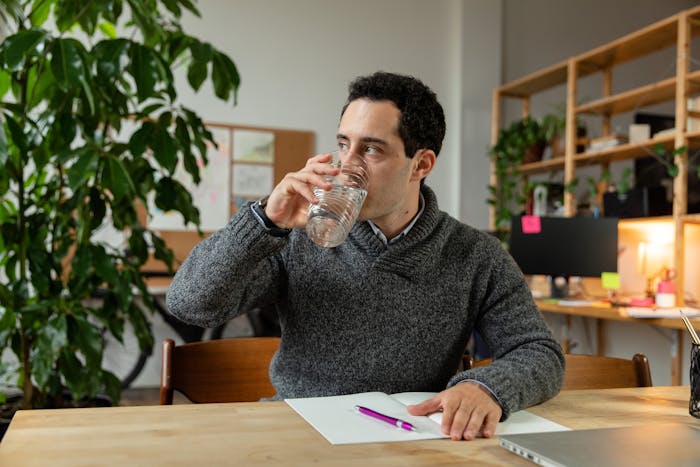We offer referrals to a variety of rehabs that offer addiction treatments for alcohol, cannabis, heroin, cocaine and prescription drug addiction in Bristol.
We may recommend a range of CQC-registered [1] alcohol rehab and alternative treatments, ranging from a 7-day detox process, a fully 28-day rehab programme, and home detoxes in Bristol.
At Rehab 4 Addiction, our helpline staff are here to guide you through this process of seeking alcohol rehab in the Bristol area.
Below, we outline the various alcohol rehab treatments available in Bristol. [2]
Treatments may include residential rehab, inpatient detoxification, home detox and outpatient therapy.
Below, we outline the specific benefits you receive when you choose to contact Rehab 4 Addiction, as opposed contacting clinics directly yourself:
Rehab 4 Addiction in Bristol – affordable private rehab options
Address: 55 Queen Square, Bristol, Bristol. BS1 4LHTelephone: 0117 905 9231
Business hours: Open 24 Hours/7 days a week
Services in Bristol: Addiction Treatment, Alcohol Detoxification, Alcohol Rehabilitation, Drug Rehabilitation, Residential Rehab for Addiction, Alcohol Home Detox
For more information on detox and rehab options in Bristol, contact Rehab 4 Addiction today on 0117 905 9231.

Drug and alcohol rehabs in Bristol help people recover from substance abuse disorders.
When you become addicted to drugs or alcohol, your body can become physically dependent.
This means it is not able to function normally without substances.
When you stop taking [6] drugs or drinking alcohol, your body can go into withdrawal. Alcohol rehab is there to help you manage withdrawal symptoms.
It has become reliant on these substances, and it takes time to get used to sobriety.
Going to a drug and alcohol rehab gives you the best chance of a good recovery.
It is not easy quitting drugs or alcohol, [7] especially after a long period of drug abuse. [8]
In our partner Bristol alcohol rehabs, you will be looked after. Qualified recovery workers will take care of you and will help you through this difficult stage.
There are many centres providing drug and alcohol rehab services in Bristol.
Here are some key points to note about our partner alcohol rehabilitation centres:
To learn more about how a CQC alcohol rehab facility in Bristol can help you beat addiction once and for all, call our team today on 0800 140 4690

Not everyone who is seeking to access treatment for substance misuse will necessarily need to have treatment as an inpatient at a drug and alcohol rehab facility in Bristol.
Many people will be able to complete the detox process at home in Bristol and gain access to psychosocial interventions in the community without needing to spend several weeks at an alcohol rehab treatment centre in Bristol.
However, there are some people who medical practitioners would strongly recommend consider receiving treatment as an inpatient at a drug and alcohol rehabilitation in Bristol.
These include:
If you’re still unsure whether or not drug and alcohol rehab in Bristol is the right choice for you, call our expert team today on 0800 140 4690

It is more than likely that the cost of alcohol rehab will be different for each person as it is dependent on their treatment needs, budget, the location they choose and how long their treatment lasts.
If a person is undergoing drug and alcohol rehabilitation in Bristol for one month, which is the usual duration for treatment, and decides to have a room on their own then this will cost approximately £8,000 – £12,000.
However, if they would like to reduce the cost then they could choose to share a room with other inpatients and this would set them back around £6,000.
There is also the possibility of having a home detox which would also reduce the overall cost compared to alcohol rehab, this depends on them being assessed as being low risk for severe symptoms for alcohol withdrawal.
Home detoxes cost around £1,500 in Bristol, which is significantly cheaper than staying at most residential alcohol rehab clinics.
Being an outpatient, however, means that any alcohol rehabilitation support that you require may be slower getting to you as you are further away from the support than you would be if you were based in the treatment centre.
You would also be vulnerable to certain temptations in your immediate social environment that may trigger a relapse.
This could be controlled and managed much easier if you are undergoing inpatient alcohol rehab treatment in Bristol.
However, many people successfully complete a home detox programme in Bristol.
If you cannot afford to pay for alcohol rehab in Bristol privately, then reach out to an organisation offering free help and advice, such as Bristol Mind, Bristol Drugs Project, Developing Health & Independence, and Bristol ROADS.
There’s also a Facebook group called Bristol Sober Spaces which is also worth checking out. This might be particularly helpful if you have already started your addiction recovery programme.
For a more accurate idea of how much your time at a drug and alcohol rehab in Bristol will cost, call us today on 0800 140 4690

People wishing to engage in treatment for substance misuse have the option of choosing between private and council-funded rehab in Bristol, both of which have their own advantages and drawbacks.
One positive aspect of funding your own treatment at private rehab clinics in Bristol is the speed and ease in which you will gain access to treatment.
Once you have decided that you are going to engage with the treatment you can expect to be admitted to the alcohol rehab treatment programme within a matter of days of making payment.
Self-funded patients also have more options to choose from in terms of the location they choose for their alcohol rehab addiction treatment services, whether they have a private room and how long they will stay there.
They are also more likely be able to gain access to all of the recommended interventions that have been suggested on their recovery plan at alcohol rehab in Bristol.
They will be able to choose a location with more therapeutic interventions they can take part in.
Some treatment centres in Bristol have a wider range of options available, particularly in terms of holistic therapies and recreational activities.
This is dependent on the financial budget people set for themselves for treatment, patients with a bigger budget will be able to access treatment at an alcohol rehab centre that has a higher staff-to-patient ratio.
The range of treatment options open to anyone depends on the money available and how they choose to spend the money they have.
Each person needs to think carefully about their treatment needs and personal needs, these have to be balanced to ensure people spend most on their money on effective alcohol rehab treatment, which may mean certain options like having a room to yourself would have to be sacrificed.
However, it is worth mentioning that money doesn’t guarantee a successful outcome when it comes to alcohol rehab treatment, that is down to the motivation, determination and perseverance of each individual as they work hard on themselves and fully engage with treatment.
For help choosing the ideal private drug and alcohol rehab in Bristol, give our team recovery experts a call on 0800 140 4690
There are opportunities for people seeking treatment for substance misuse to apply for funding for alcohol rehab through local council and NHS avenues in Bristol.
There are several NHS and charity-run organisations in Bristol [18] that offer alcohol rehabilitation support, including:
Telephone: 03301 340 286
Website: https://www.recovery4all.co.uk/gambling-help/get-support/
Telephone: 01179 892 521
Website: http://www.theswanproject.co.uk/
Telephone: 01179 876 000
Website: http://www.bdp.org.uk/
There are drawbacks however to this option as the funding can take a long time to be approved, especially for residential alcohol rehab in Bristol, so people may be waiting months if not over a year [19] to access treatment.
The application process for council-funded alcohol rehab in Bristol can in itself be very time-consuming and applicants will need to show perseverance, motivation and determination to put their funding application together.
There is likely to be a long waiting list as there are a limited number of funding places for alcohol rehab available in certain areas.
However, if you are willing to travel a long distance to receive your treatment rather than stay close to your family this can reduce your waiting time for alcohol rehab. You may also need to attend an alcohol rehab away from Bristol, perhaps in Merseyside, Lancashire or Somerset, where there are more rehabs accepting payment via local authorities.
Your funding may not be able to cover all the recommended alcohol rehab treatment options that are beneficial for your addiction recovery, you will not have access to as many of the interventions and facilities as private clients with a greater budget.
However, the funding for alcohol rehab in Bristol obtained should enable people to gain access to effective treatments such as a detox process and a range of psychological therapies at most alcohol rehab clinics.
The more holistic and recreational aspects of a treatment plan may not be covered by this form of funding.
Other organisations in Bristol and across the UK that you can reach out to for help include Al-Anon, Alateen, Change Grow Live, Turning Point, and We Are With You.
You can also find further alcohol rehabilitation and wellbeing help from the National Association for Children of Alcoholics, [20] the National Institute for Health and Care Excellence, [21] and a local NHS Foundation Trust.
You can use the map below to locate free and statutory addiction services in Bristol:
For assistance in securing NHS funding for your stay at a drug and alcohol rehab in Bristol, call us on 0800 140 4690

This varies from person to person, although the majority of people tend to stay in alcohol rehab for 28 days.
However, if you are just at a drug and alcohol rehab in Bristol for just the drug or alcohol detox process without following any following therapy treatments, then you will probably only be there for 7 to 10 days as part of a short-term alcohol rehab programme.
A person receiving detox from an opioid drug may need to spend up to three weeks in alcohol rehab due to the more complex nature of opioid withdrawal, whilst severe addictions in general may require a long-term alcohol rehab programme.
It is recommended to allow a period of 3 to 4 weeks to ensure you receive maximum benefit from all the psychological therapies that will aid your recovery.
So, if someone has been through a detox treatment for an opioid drug and then engages in psychological therapies, they may well be in treatment for 6 weeks.
For a more personalised answer to how long your stay at a drug and alcohol rehab in Bristol will take, call us today on 0800 140 4690

Here are some tips that will help you get the best alcohol rehab treatment in Bristol for your needs.
To get the most from your stay at a drug and alcohol rehab in Bristol, call our team today on 0800 140 4690

Once withdrawal symptoms cease, patients undergo counselling, addiction workshops and addiction therapy sessions.
Any drug and alcohol rehab in Bristol will offer these sessions in either group or individual settings.
Counselling and addiction therapy sessions at alcohol rehab are run by qualified counsellors.
These counsellors have been helping people through alcohol rehab in Bristol for years.
They will help you to understand the root causes [38] of your addiction problems. They will teach you to spot and challenge [39] thoughts that lead to relapse.
Alcohol rehab patients also take part in holistic therapies such as Reiki, mindfulness, art treatments, music therapy, yoga and aromatherapy.
All of these alternative addiction therapy sessions provide a different experience to talking therapies such as CBT. They work best in concert with these talking therapies.
We discuss these alcohol rehab therapies below:
CBT targets a person’s thought patterns and helps them understand how these have negatively impacted their behaviour.
Anyone who has low self-esteem or is susceptible to self-blame can benefit from CBT at alcohol rehab.
Substance misusers may well have developed inaccurate and irrational beliefs about the way others perceive them, how they perceive themselves and how they interpret events that happen to them.
CBT at alcohol rehab primarily provides people with cognitive strategies to help them deal more effectively with the challenging situations that they encounter so that they can reduce their anxiety levels and avoid needing to consume substances to cope when faced with adversity.
CBT enjoys a high success rate, [40] with low chances of relapse [41] for those who complete a full course, although some people will naturally find it less effective [42] due to conditions like personality disorders or learning disabilities.
Many drug and alcohol rehab centres in Bristol offer CBT.
DBT helps people at alcohol rehab deal with the strong feelings that are present in themselves and helps them understand where they originate from and how to manage these feelings more productively.
As many substance misusers find it difficult to manage their feelings and hence turn to substances, DBT can be a very effective intervention to help people move forward.
A key part of the therapist’s work at alcohol rehab involves helping people reconcile two concepts that appear to be incompatible with each other.
These are, being able to accept yourself for who you are and being comfortable with that.
Alcohol rehab can also help you develop the courage and determination to elicit positive changes in your own behaviour.
Again, many alcohol rehabilitation centres in Bristol are able to provide a DBT addiction service.
Not everyone with addiction problems is diagnosed with a severe SUD.
In some cases, your substance use could become problematic if it carries on for too long into the future. This could lead to you needing to go to alcohol rehab to recover.
Even if your health is not a cause for concern at the moment, you may benefit from brief interventions.
This alcohol rehab therapy encourages you to reflect on their current behaviour and discuss the various options that may be open to you if you wish to lead a healthier lifestyle.
Therapists at a Bristol alcohol rehab delivering brief interventions adopt a supportive, empathic approach rather than an aggressive one.
The aim is to work WITH the client and help them understand the consequences of their current substance use and to explore options that may lead them to change.
Brief interventions help to form a key part of most alcohol rehab treatment services in Bristol.
MI is a counselling approach used at alcohol rehabs in Bristol with the primary aim of helping people find the motivation to change their behaviour and significantly reduce, if not eliminate substances from their life.
MI is an approach used to combat any resistance to change on the part of the client.
By showing empathy and understanding, the alcohol rehab therapist will work with the patient to try and identify reasons that can provide the motivation to change their behaviour.
An example of a motivating factor could be helping the client see how important their job or career is to them and how upsetting it might be for them if they were unable to continue working in that area.
The MI approach at alcohol rehab works well in tandem with the Stages of Change Model and the therapist can adjust their approach depending on which one of the stages the client is in, and in doing so facilitate their progression to the next stage. [43]
Motivational interviewing is widely used in most Bristol alcohol rehab services.
Equine therapy utilised at alcohol rehab in Bristol involves working with a therapist and a horse, with the therapist guiding interactions between the patient and the animal.
Through this form of therapy, alcohol rehab patients are able to get an idea of their own behaviour when interacting with others as the horse provides them with valuable feedback on their communication style.
Equine therapy has been known to improve people’s social and communication skills, self-esteem, and allow them to be more assured when setting boundaries and also help them eradicate any aggressive tendencies. It is possible to benefit from this sort of therapy at a drug rehab and alcohol rehab in Bristol.
Several alcohol rehab services in Bristol are able to provide equine therapy.

Art therapy is a form of holistic therapy often used at alcohol rehab.
Many people in recovery from substance misuse struggle at times to find the right words to convey how they are feeling.
Engaging in art treatments exercises at alcohol rehab in Bristol provides people with a different pathway to getting in touch with unexpressed emotions and help them overcome adverse life experiences.
Art therapy has the distinct advantage in that it works well in helping people tackle issues that are synonymous with the main principles of the famous AA 12 step treatment programme.
These include the concept of powerlessness and connecting to a power greater than yourself at alcohol rehab.
Through art-based activities, people can gain an element of control, which may have been absent for a long period of time due to the chaotic nature of their substance misuse.
Denial [44] and shame are two issues that people can also work through by utilising their creative abilities.
Most alcohol rehab centres in Bristol can facilitate art therapy.
Music has been said to enable us to connect to our innermost, emotional and spiritual selves and because of this, it has immense therapeutic value at alcohol rehab.
It also enables us to feel more human and has a strong social element that facilitates our ability to connect with each other.
Music has a strong tradition in its use as a vehicle for healing going back centuries and it has developed into a well-respected therapy that has a role in treating people in recovery from substance misuse.
The key aim in music therapy during Bristol alcohol rehabilitation is the application of music or sounds to help a person express negative emotions.
At rehab, this is achieved through the development of a supportive relationship between the therapist and client which results in the latter obtaining an improvement in their physical, emotional and spiritual well-being.
Music therapy can be facilitated by most alcohol and drug rehabilitation centres in Bristol.
Adventure therapy in Bristol has started to gain popularity recently as a therapeutic option to help people build their confidence levels, learn new skills and develop positive relationships with others.
Being surrounded by nature has been seen to have huge therapeutic value.
Alcohol rehab utilises adventure therapy by arranging activities for people to tackle in inspiring and picturesque settings, such as forests other green areas.
Being in a new and more exhilarating environment should help to boost people’s energy levels and alter their negative mindset.
The therapy may focus on team recovery challenges and also offer exposure to activities such as canoeing, rock climbing and map reading.
Adventure therapy can be accommodated by some Bristol alcohol rehab services.
Group therapy forms a key component of any addiction treatment programme at alcohol rehab in Bristol and many of its principles are based on the important AA value of fellowship and supporting each other.
Many people in treatment for substance misuse have had disruptions in their family life and relationships through no fault of their own.
The alcohol rehab group can become the family some people never had and fulfil the attachment needs that have eluded them up to now.
Group therapy helps people re-connect with others in a positive way and promotes feelings of empathy, positive regard and a genuine concern for others which will help people have more fulfilling relationships in the future.
Engaging in group therapy at alcohol rehab improves people’s communication skills and self-esteem and helps them feel connected to others.
Group therapy is a cornerstone of most Bristol alcohol rehabilitation centres.
Individual therapy is a feature of most people’s alcohol rehab treatment plan and helps clients understand how their substance misuse behaviour developed.
Therapy can help clients understand how their relationships with others, childhood and adolescent experiences and trauma and negative life experiences all potentially played a role in their substance use.
A qualified therapist at any of Bristol’s alcohol rehab clinics will help you make sense of your life experiences and help you develop the psychological resilience to move forward.
Your comprehensive addiction assessment will help determine the most suitable type of therapy for you, based on your life experiences and addiction history, allowing you to have the best alcohol rehab experience possible.
The types of therapy people usually receive are from the Psychodynamic, Person-centred, Gestalt or Transactional Analysis schools.
Trauma therapy is also a common therapeutic intervention at alcohol rehab recommended for a significant number of substance misusers.
Everyone undergoing addiction treatment techniques in Bristol will experience individual therapy.

Family therapy at Bristol drug and alcohol rehab centres is based on a systemic approach that views the family as a system.
Families often have some influence in whether or not you become psychologically unwell.
A skilled alcohol rehab therapist will help families improve their ability to communicate more positively and therefore operate in a less dysfunctional manner.
Family therapy encourages families to explore unhealthy dynamics and communication patterns to see if they offer any clues to explain substance misuse behaviour.
Alcohol rehabs can use family therapy to restore your support network and make your relationships healthier.
Some Bristol alcohol rehabs are able to facilitate family therapies when appropriate.
People in Bristol who are co-dependent tend to have difficulty looking after their own needs.
Alcohol rehab can help you discover if you tend to over-focus on the needs of other people, or if you’re in a dynamic that’s controlling or manipulative.
There is a high prevalence of co-dependency in substance misusers and their families and it is a complex behaviour to try and untangle.
Co-dependency is thought to have its roots in early childhood trauma which leads to negative emotions and unmet needs.
Through therapy, alcohol rehab patients can begin to slowly overcome the main traits of co-dependency.
This includes poor boundary setting, low self-esteem, not knowing their own needs, a lack of understanding about their own reality and having extreme responses.
Some alcohol rehabs in Bristol are able to conduct co-dependency treatment when necessary.
The 12 step treatment programme is based on one of the main principles of AA and consists of a series of psychological and reflective challenges for people to work on.
Alcohol rehab aims to help people at rehab in Bristol put their old life behind them and build a new one.
The steps are designed to enable people to acknowledge what has happened to them, and how they became powerless which led to their lives becoming unmanageable.
The challenge of the 12 steps involves people reflecting on, and making a list of many aspects of themselves, their behaviour and various shortcomings and character defects at alcohol rehab.
Once this process has begun, they can then work on making amends to everyone they have hurt and improve aspects of their character that they deem to be undesirable.
The alcohol rehabilitation programme will also require them to support and connect with other people who have been through similar experiences.
You can take up spiritual practices such as meditation at alcohol rehab to get in touch with what you perceive to be a higher power.
12-step facilitation therapy is a key path used by many Bristol alcohol rehab centres.
Other types of therapy available at alcohol rehab in Bristol include:
You can also receive other forms of psychiatric treatment at rehab such as contingency management, coping mechanisms, and person-centered care to tackle the myriad issues of psychological addiction.
To access any of these first-rate treatments through a drug and alcohol rehab in Bristol, call us today on 0800 140 4690

As mentioned earlier, there are many drug and alcohol rehab centres in Bristol.
Each of these centres has a specialised alcohol rehab treatment programme.
Most of these centres have one form or another of support group programme.
These include Alcoholics Anonymous (AA), [45] Narcotics Anonymous (NA) [46] and Cocaine Anonymous (CA). [47] These 12 step treatment programmes require you to attend and participate on a regular basis around Bristol and Avon.
There are no specific guidelines on which alcohol rehab programmes in Bristol you should choose. It is up to you.
Despite this, there are factors that you should take into consideration.
These include:
There are several types of alcohol and drug rehab treatment in Bristol that cater to different needs.
Alcohol rehab is categorised into:
For help choosing the perfect addiction treatment techniques in Bristol for you, call us today on 0800 140 4690

A person giving up alcohol at alcohol rehab after a period of heavy use can experience withdrawal symptoms such as headaches nausea, fever-like symptoms and heavy sweating.
The heavier users may be at risk of having tremors and seizures, the latter of which can have life-threatening consequences.
The first step for a patient entering alcohol rehab treatment for alcohol misuse would be to go through a detox treatment in Bristol which will last between seven to ten days.
This will help the patient slowly decrease the levels of alcohol within their body in a safe manner, avoiding any of the negative consequences that can occur when withdrawing from alcohol
This alcohol rehab treatment will be overseen by experienced medical practitioners who will monitor you carefully throughout the process and prescribe specialist medication like Librium (Chlordiazepoxide.
This will help you withdraw slowly and safely as it has chemical properties that protect people from the risk of any seizures.
At alcohol rehab, you might also be prescribed other medications based on your symptoms and needs, including Naltrexone, [49] Acamprosate, [50] Nefazodone, [51] Paroxetine [52] and its various alternatives. [53]
You might also receive a specialised alcohol demotivator designed to eliminate the positive association between alcohol use and feeling good.
Once the withdrawal symptoms are under control at alcohol rehab, then the patient can begin to work on their programme of psychosocial interventions for several weeks which will include many of the treatments found later on in this page.
These psychosocial therapies at any Bristol alcohol rehab facility will enable people to comprehend the nature of their substance misuse and the factors that led to it.
Gaining an understanding of their own thoughts, feelings, relationships and behaviours will help people think about the changes they need to make in these areas in order to get better.
To access the right drug and alcohol rehab facility in Bristol for your needs, call us today on 0800 140 4690

It is imperative that any person requiring an alcohol detox process consults with medical professionals and does not try this on their own.
Sudden withdrawal from alcohol can have serious consequences as it can result in a person having a life-threatening seizure. This is why medical supervision at alcohol rehab is so important.
This is because alcohol is a central nervous depressant and withdrawal symptoms tend to have the opposite effect on the body to the usual effect that a drug has.
The brain adapts to regular ingestion of any psychoactive drug. When this ceases at alcohol rehab, the brain can behave erratically as it is missing the presence of alcohol which it has got used to processing.
Luckily, addiction specialists have devised safe and effective treatment methods for helping people withdraw from alcohol so consult with your GP / medical practitioner to discuss treatment options in Bristol.
To make sure your alcohol withdrawal gets the support it needs from a drug and alcohol rehab in Bristol, call our team today on 0800 140 4690

There is an option for home detoxes in the Bristol area and Rehab 4 Addiction can provide you with more information about this.
Anyone interested in receiving a home detox process will be required to go through a detailed assessment to ensure that they do not need to be monitored more closely.
Medical care at alcohol rehab is particularly important for those people in Bristol who tend to have severe withdrawal symptoms if they regularly consume large amounts of alcohol.
A person’s daily consumption should not exceed 30 units [54] if they wish to register for a home detox.
You will receive Librium in the post which will help you to withdraw safely as it contains properties that drastically reduce the risk of seizures which is a significant risk when giving up alcohol.
You will be monitored daily over the phone during your alcohol rehabilitation, to check the treatment is going well by your designated medical team which will be led by a psychiatrist.
Compared to alcohol rehab, the home detox process is preferable to self-detox, in which a person tries to withdraw from alcohol on their own without any medical assistance which is a very risky thing to attempt.
It must be emphasised though that home detox patients in Bristol will not be able to have medical detox assistance as swiftly as they would if they were based at an alcohol rehab treatment centre where the response would be immediate if any related problems occurred.
Please call our 24-Hour Helpline: 0800 140 4690
Other types of addictions [55] and substance use disorders that can be treated in a Bristol alcohol rehab facility include:
Please call our 24-Hour Helpline: 0800 140 4690

Many people who seek help for their substance misuse in Bristol may also have a coexisting mental health condition as well.
The term dual diagnosis is used to describe people at alcohol rehab who fall into this category.
The common mental health disorders [60] that people with a SUD tend to be diagnosed with include:
Ideally, anyone with a dual diagnosis should be treated in an inpatient alcohol rehab programme where they can receive regular specialist care.
At alcohol rehab, practitioners understand the complications of treating people with addiction and other mental health conditions.
Rehab 4 Addiction has years of experience in a wide range of mental health conditions that occur alongside addiction and can balance the treatment programme to account for the way the two conditions interact with each other.
This is vitally important as a high proportion of people receiving treatment through an inpatient alcohol rehab programme will receive a dual diagnosis, as patients with two occurring conditions tend to have poorer health outcomes on the whole than patients with just one diagnosis.
The mental health treatment you receive at a qualified drug and alcohol rehab facility in Bristol will be just as professional and effective as that received at a dedicated mental health treatment hospital.
You can also find general mental health support at Rethink Mental Illness, Papyrus, Young Minds, Samaritans and Mind UK.
Please call our 24-Hour Helpline: 0800 140 4690

The acquisition of relapse prevention skills is essential for people in alcohol rehab, these skills will help them maintain the positive behaviour that they have developed, and prevent the older, more maladaptive behaviours from creeping back into their life.
There are two main components involved with relapse prevention strategies, firstly the identification of high-risk situations that may make you vulnerable to taking substances again.
Applying newly learned cognitive skills to prevent them from relapsing after alcohol rehab in these vulnerable situations.
When you are in the company of people who you used to take substances with, you may be triggered and experience addiction cravings.
These could be social events such as sporting events or work-based social gatherings.
Working with a therapist will enable people to recognise these situations and then put a recovery plan in place at alcohol rehab to tackle them.
Many people relapse [64] – what’s important is to learn from the situation and use this knowledge to formulate a plan for the next high-risk situation you encounter.
Understanding your triggers and using coping strategies is a vital skill to maintain recovery after alcohol rehab.
Please call our 24-Hour Helpline: 0800 140 4690

Once you are done with detox and alcohol rehab, the final step is getting into aftercare treatment.
Aftercare is just as vital as the formal addiction treatment programme itself.
Aftercare treatments after alcohol rehab will help you cope with your new life in Bristol free from addiction.
It will help you avoid relapsing, which will always be a concern as, whilst addiction can be managed, it cannot be cured. [65]
Here are the top three alcohol rehab aftercare options that you can engage in for successful addiction recovery:
Once their addiction treatment programme draws to a successful close, patients receive a personalised aftercare plan.
This plan helps patients in their quest to remain clean. It eases the transition into normal life outside your chosen Bristol drug and alcohol rehab.
Patients are typically permitted to return to their addiction rehabilitation centre for an additional twelve months after they leave to access aftercare support.
Most Bristol alcohol rehabs offer aftercare sessions on a Saturday afternoon or at another convenient time.
Please call our 24-Hour Helpline: 0800 140 4690

Attending an alcohol rehab facility in Bristol is not suitable for everyone, and is very much dependent on your individual circumstances.
There are other treatment options available in the Bristol area:
The Bristol area is home to a large number of support groups such as AA and NA who are there to offer support and understanding for people whose lives have been blighted by substance misuse.
Rehab 4 Addiction will have details of all the relevant support groups in Bristol and surrounding area who you can turn to receive empathy and respect with no prejudice or judgement whatsoever.
There will be several addiction treatment meetings available for you to attend each week, where you can gain insight into your behaviour and check your progress.
There are also opportunities to have alcohol rehab treatment on an outpatient treatment basis.
This can be achieved by registering with a local community drugs team in the Bristol area or with a GP surgery, who after carrying out an addiction assessment will recommend a personalised treatment plan for you.
You do not need to be at an inpatient alcohol rehab facility to have access to treatment now as home alcohol detox treatment and some home drug detoxes are now realistic options.
There are many psychosocial interventions that people in outpatient alcohol rehab can attend, and still access regularly throughout the week whilst living in their home.
Examples of this could be support group meetings such as AA, group addiction therapy sessions and relapse prevention training.
Please call our 24-Hour Helpline: 0800 140 4690
SMART Recovery is a national charity that offers valuable advice, strategies and resources to people seeking to recover from excessive use of substances.
SMART Recovery [67] utilises specially trained facilitators who will work through a carefully designed alcohol rehabilitation programme with you to equip you with the cognitive and personal skills required to help you move forward.
One of the key aims of SMART recovery is to empower people to make positive personal choices and to reflect on what they want out of life and then provide them with the tools to achieve it.
Many of SMART’s programme includes cognitive behavioural elements and applies this approach to helping people to manage negative thoughts and emotions.
Their alcohol rehabilitation programme also focuses on maintaining motivation, dealing with cravings and ensuring they have a healthy balance in their lives.
SMART’s courses are available online and so are easy to access whenever you feel you are ready to contact them. You can go to SMART either before or after you attend alcohol rehab, or following a home detox process.

Here are the frequently asked questions about drug and alcohol rehab in Bristol:
Addiction recovery is a lifelong undertaking of putting your life back together after drug abuse and alcohol rehabilitation.
On the other hand, drug abuse rehabilitation is the process of helping an addict successfully overcome their addiction. Addiction recovery comes after drug abuse rehabilitation
The price of treatment varies from one alcohol rehab centre to another. If you choose to go with the support group option, it’s free as volunteer organizations run most of them.
Typically, an alcohol rehabilitation program in Bristol will cost from £1,500 to £30,000 for a month for a residential program. If you choose to do outpatient alcohol rehab, the cost will likely be lower and any treatment accessed through he NHS will be free or at a significantly reduced cost. [68]
You don’t need insurance to enlist for an alcohol rehabilitation program in Bristol. Just keep in mind that if you are paying out of pocket, you might have to dig deep
Please call our 24-Hour Helpline: 0800 140 4690

Now that you have all the info on drug and alcohol rehab in Bristol, we hope you will make the correct decision for your well-being.
Remember that the road to recovery begins with the first step.
Rehab 4 Addiction offers a helpline for those affected by addiction in Bristol.
This includes friends and family members.
All of the alcohol rehabs we recommend are regulated by the Care Quality Commission [69] (England and Wales) or the Care Inspectorate [70] (Scotland).
Rehab 4 Addiction offers a wide variety of help to addiction sufferers in Bristol and nearby in Ashley Down, Ashton Gate, Avonmouth, Barton Hill, Bedminster, Bishopston, Bishopsworth, Blaise Hamlet, Brentry, Brislington, Bristol, Broom Hill, Broomhill, Clevedon, Clay Hill, Clifton, Coombe Dingle, Cotham, Downend, Eastfield, Easton, Eastville, Filton, Filwood Park, Fishponds, Frenchay, Golden Hill, Headley Park, Henbury, Hengrove, Kingswood, Knowle, Somerset, Lawrence Weston, Lockleaze, Montpelier, Netham, Novers Park, Portishead, Redfield, Ridgeway, Southmead, Speedwell, St George, Stockwood, Two Mile Hill, Westbury Park, Whitehall, Yate and even more.
This article was written by Boris Mackey. You can connect with Boris online at LinkedIn or X.com.
More resources:
Call us on 0800 140 4690 and start your treatment journey today
[3] https://www.ncbi.nlm.nih.gov/pmc/articles/PMC3654310/
[4] https://nida.nih.gov/publications/drugs-brains-behavior-science-addiction/drug-misuse-addiction
[5] https://www.mdpi.com/1660-4601/8/9/3528/htm?hc_location=uf
[8] https://web.archive.org/web/20240423042317/https://www.cdc.gov/alcohol/fact-sheets/alcohol-use.htm
[10] https://www.mayoclinic.org/diseases-conditions/alcohol-use-disorder/symptoms-causes/syc-20369243
[11] https://www.asam.org/asam-criteria/about-the-asam-criteria
[14] https://www.mdcalc.com/calc/1729/cage-questions-alcohol-use
[15]https://www.ahrq.gov/prevention/guidelines/tobacco/5steps.html
[17] https://www.verywellmind.com/the-craft-approach-to-substance-abuse-intervention-5191125
[18] https://www.nhs.uk/Live-well/addiction-support/drug-addiction-getting-help/
[21] https://www.nice.org.uk/guidance/health-protection/drug-misuse
[22] https://www.ncbi.nlm.nih.gov/books/NBK92053/table/ch2.t5/
[23] https://www.recoveryanswers.org/research-post/recovery-attempts-review/
[24] https://www.painscale.com/article/the-4-c-s-of-addiction
[27] https://web.archive.org/web/20240423042317/https://www.cdc.gov/alcohol/fact-sheets/alcohol-use.htm
[28] https://web.archive.org/web/20240423042317/https://www.cdc.gov/alcohol/fact-sheets/alcohol-use.htm
[29] https://www.cdc.gov/alcohol/fact-sheets/womens-health.htm
[31] https://www.niaaa.nih.gov/publications/alcohol-and-brain-overview
[32] https://pubs.niaaa.nih.gov/publications/aa22.htm
[33] https://premierneurologycenter.com/blog/neurologic-diseases-associated-with-alcohol-consumption/
[35] https://www.ihs.gov/asap/familyfriends/warningsignsdrug/
[36/37] https://www.ncbi.nlm.nih.gov/pmc/articles/PMC6876531/
[39] https://medlineplus.gov/ency/article/001522.htm
[40] https://gpsych.bmj.com/content/32/5/e100087
[41] https://pubmed.ncbi.nlm.nih.gov/32954958/
[42] https://www.ncbi.nlm.nih.gov/pmc/articles/PMC7001356/
[43] https://www.ncbi.nlm.nih.gov/pmc/articles/PMC6760428/
[44] https://www.mountsinai.org/health-library/selfcare-instructions/deciding-to-quit-drinking-alcohol
[45] https://www.alcoholics-anonymous.org.uk/Bristol
[46] https://meetings.ukna.org/meeting/bristol-eden-grove-community-centre
[47] https://meetings.cocaineanonymous.org.uk/Bristol
[48] https://web.archive.org/web/20240423042317/https://www.cdc.gov/alcohol/fact-sheets/alcohol-use.htm
[49] https://www.webmd.com/mental-health/addiction/features/fighting-alcoholism-with-medications
[50] https://effectivehealthcare.ahrq.gov/products/alcohol-misuse-drug-therapy/consumer
[52] https://www.ncbi.nlm.nih.gov/pmc/articles/PMC5614930/
[53] https://www.rehab4addiction.co.uk/addiction-treatment/naltrexone-implant
[55] https://www.ncbi.nlm.nih.gov/pmc/articles/PMC5328289/
[56] https://www.nhs.uk/live-well/alcohol-advice/the-risks-of-drinking-too-much/
[58] https://onlinelibrary.wiley.com/doi/full/10.1111/add.13757
[59] https://www.ncbi.nlm.nih.gov/pmc/articles/PMC4402015/
[60] https://web.archive.org/web/20230315051842/https://pubs.niaaa.nih.gov/publications/arh22-1/61-66.pdf
[61] https://iv.iiarjournals.org/content/24/5/761
[62] https://www.ncbi.nlm.nih.gov/pmc/articles/PMC6241194/
[63] https://www.niaaa.nih.gov/publications/brochures-and-fact-sheets/understanding-alcohol-use-disorder
[64] https://www.tpoftampa.com/how-common-is-relapse-after-rehab-and-how-can-it-be-avoided/
[65] https://nida.nih.gov/publications/drugs-brains-behavior-science-addiction/treatment-recovery
[66] https://www.newdirectionsforwomen.org/what-percentage-of-alcoholics-recover/
[67] https://uk.meetings.smartrecovery.org/Bristol
[70] https://www.careinspectorate.com/index.php/inspection-reports
 After completing or trying your best for Dry January, it can be tempting to count the days left until you can give it all up and return to drinking. But there are multiple benefits to maintaining your abstinence into February and longer. During Dry January, your liver begins to repair itself, say if you were […] .... Read More
After completing or trying your best for Dry January, it can be tempting to count the days left until you can give it all up and return to drinking. But there are multiple benefits to maintaining your abstinence into February and longer. During Dry January, your liver begins to repair itself, say if you were […] .... Read More
 Substance addiction, also referred to as Substance Use Disorder (SUD), is a chronic and relapsing brain disease that affects both physical and psychological functioning. It develops when repeated exposure to drugs or alcohol alters brain chemistry, particularly the reward and motivation systems, leading to compulsive substance use despite harmful c .... Read More
Substance addiction, also referred to as Substance Use Disorder (SUD), is a chronic and relapsing brain disease that affects both physical and psychological functioning. It develops when repeated exposure to drugs or alcohol alters brain chemistry, particularly the reward and motivation systems, leading to compulsive substance use despite harmful c .... Read More